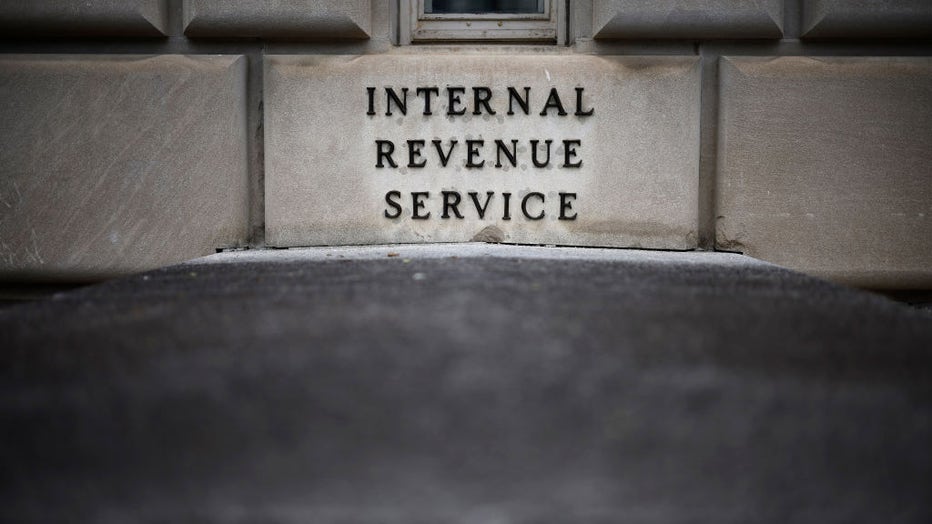IRS to test free online tax-filing platform in 13 US states

Expert offers tips for preparing, filing your taxes
Courtney Alev, a consumer financial advocate at Credit Karma, offers tips for preparing and filing your taxes.
WASHINGTON - The Internal Revenue Service plans to test a platform that would allow Americans to file their taxes online for free, saving people money on tax-preparation services used each year.
The idea of a government-operated electronic free-file tax return system has been debated for years – with advocates noting how it could better serve taxpayers, and critics skeptical about the IRS taking on dual roles of both the tax collector and preparer.
The IRS’ pilot program, called "Direct File," will be launched in 13 U.S. states for filing season 2024, the agency said.
Four states, Arizona, California, Massachusetts and New York, are working with the IRS to integrate their state taxes into the pilot program. Taxpayers in nine other states without an income tax – Alaska, Florida, New Hampshire, Nevada, South Dakota, Tennessee, Texas, Washington and Wyoming – will also be able to take part.
The IRS said all U.S. states were invited to join the pilot program, but not all "were in a position to join" at the time. The online tax-filing platform will be limited to taxpayers with "relatively simple returns," the agency added.
"This is a critical step forward for this innovative effort that will test the feasibility of providing taxpayers a new option to file their returns for free directly with the IRS," IRS Commissioner Danny Werfel said in a statement.

FILE - A small sign indicates the headquarters of the Internal Revenue Service on April 7, 2023, in Washington, D.C. (Photo by Chip Somodevilla/Getty Images)
IRS’ free tax-filing platform: Mobile-friendly, will cover key income, tax credits
The IRS said the online platform will only cover individual federal tax returns during the pilot.
The agency anticipates that it will include several main sources of income and tax credits, including W-2 wage income, Social Security and railroad retirement income, unemployment compensation, the Earned Income Tax Credit, the Child Tax Credit, standard deductions, student loan interest deductions, education expense deductions, and more.
The filing platform will be "a mobile-friendly, interview-based service" that will work and look the same across phones, laptops, tablets, and desktop computers. It will be available in both English and Spanish for the pilot.
Government-operated, free online tax-filing system up for debate
The idea of a government-operated electronic free-file tax return system has been batted around and hotly debated for years. Earlier this year, Congress directed the IRS to report in on how such a system might work.
The Democrats’ flagship climate and health care measure, known as the Inflation Reduction Act that President Joe Biden signed into law last year, provided $80 billion for the IRS over the next 10 years. Specifically, it gave the IRS nine months and $15 million to report on how it might implement such a program and how much it would cost.
An electronic free-file system operated by Washington has been celebrated by some taxpayer advocates, who for years have said that it would reflect good governance and well serve taxpayers. Critics have voiced skepticism about the IRS serving as both a tax collector and tax preparer, arguing that the new service could create a power imbalance between taxpayers and the government.

FILE IMAGE - A man works on his tax return. (Credit: Getty Images)
Meanwhile, big tax preparation companies have millions of dollars to lose if the program becomes more widely used. Last year, more than 60 million taxpayers were serviced between Intuit, the parent company of TurboTax, and H&R Block.
Tens of millions of dollars have been spent trying to influence policymakers on the issue, and lobbying data shows that the big tax companies in particular have spent heavily.
An Associated Press analysis conducted earlier this year showed that Intuit, H&R Block, and other private companies and advocacy groups for large tax preparation businesses, as well as proponents in favor of electronic free file, have reported spending $39.3 million since 2006 to lobby on "free-file" and other matters. Federal law doesn’t require domestic lobbyists to itemize expenses by specific issue, so the sums are not limited to free-file.
Intuit has spent $25.6 million since 2006 on lobbying, H&R Block about $9.6 million and the conservative Americans for Tax Reform roughly $3 million.
Derrick Plummer, a spokesman for Intuit, told the Associated Press in April that taxpayers can already file their taxes for free and there are online free-file programs available to some people. Individuals of all income levels can submit their returns for free via the mail.
A "direct-to-IRS e-file system is a solution in search of a problem, and that solution will unnecessarily cost taxpayers billions of dollars," Plummer told the Associated Press. "We will continue unapologetically advocating for American taxpayers and against a direct-to-IRS e-file system because it’s a bad idea."
Starting in 2006, an agreement between the IRS and some commercial tax preparation companies, known as the Free File Alliance, prevented the IRS from creating its own free tax return filing system. In exchange, tax preparation companies agreed to provide free services to taxpayers making $73,000 or less.
The provision that barred the IRS from exploring a free-file system expired in 2019, but the Free File Alliance agreement to provide free services for low-income taxpayers remains in effect.
This story was reported from Cincinnati. The Associated Press contributed.

